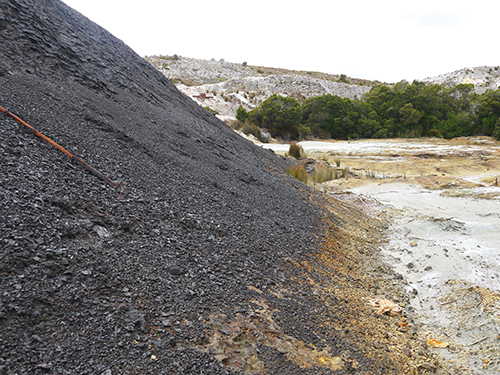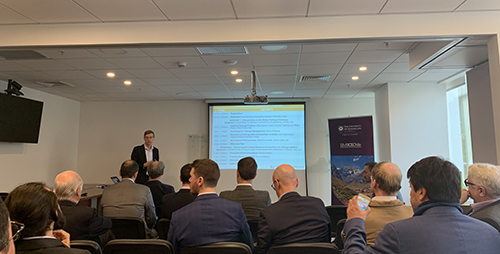 The collapse of the tailings dam at the Corrego de Feijão iron ore mine near Brumadinho in Brazil in January 2019 highlighted again the very serious risks associated with managing mining waste.
The collapse of the tailings dam at the Corrego de Feijão iron ore mine near Brumadinho in Brazil in January 2019 highlighted again the very serious risks associated with managing mining waste.
Over 270 people lost their lives in the disaster and there was widespread damage to mine facilities and downstream ecosystems.
As a result, University of Queensland researchers Professor Daniel Franks and Professor Anna Littleboy from the Sustainable Minerals Institute developed a concept note proposing a Global Research Consortium on Tailings.
Professor Franks said such a Consortium would bring together the world’s leading thinkers in tailings and mine waste management: researchers, practitioners, industry professionals, regulators, civil society and community representatives.
“Industry and public sector investment in research has expanded the approaches available to address tailings management challenges, but much of this learning remains underutilised,” he said.
“A global coordinated effort is necessary.
“The proposition of the Consortium is that with renewed, coordinated and dedicated action, a dramatic scale-up of global effort can develop the knowledge-based solutions necessary to address the significant and varied risks of tailings.”
The concept note received wide interest and in July 2019 a UQ-led team held the first workshop to promote the Consortium in Santiago, Chile, supported by SMI-ICE-Chile and the Chilean Economic Development Agency (CORFO).
22 global research institutions have expressed interest in joining the Consortium and the industry and government workshop participants strongly supported further development of the concept.
Director of UQ’s Geotechnical Engineering Centre Professor David Williams chaired the Workshop.
He said the overriding feedback was that tailings dam failure was unacceptable.
 “The feeling among the attendees was that the Consortium would provide a global program of knowledge exchange and research work to help raise the capabilities and capacities of tailings practitioners and regulatory organisations worldwide,” Professor Williams said.
“The feeling among the attendees was that the Consortium would provide a global program of knowledge exchange and research work to help raise the capabilities and capacities of tailings practitioners and regulatory organisations worldwide,” Professor Williams said.
Both Professor Williams and the Director of UQ’s Centre for Social Responsibility in Mining, Professor Deanna Kemp, are already involved in major reviews by industry of tailings practices and standards.
Professor Anna Littleboy said the Brazilian mining disaster was a reminder that, despite being core to the Mining, Minerals and Sustainable Development Project’s call to action nearly 20 years ago, tailings remain unfinished business.
“Tailings spills, dam failures, seepage, unrehabilitated sites and cases of direct discharge into waterways can be fatal, and leave environmental, social and economic legacies for thousands of years,” Professor Littleboy said.
“A multi-stakeholder consortium involving governments, civil society, affected communities, consultancies, and technology and service providers could dramatically improve tailings production and storage, the consequences of chronic and catastrophic tailings failures, as well as tailings governance and practice.”
Further workshops are planned in the lead up to a Forum in Vancouver in November, prior to the Tailings and Mine Waster 2019 Conference, when a full prospectus will be discussed.
For further information, please contact: Professor Daniel Franks, Professor Anna Littleboy or Professor David Williams



